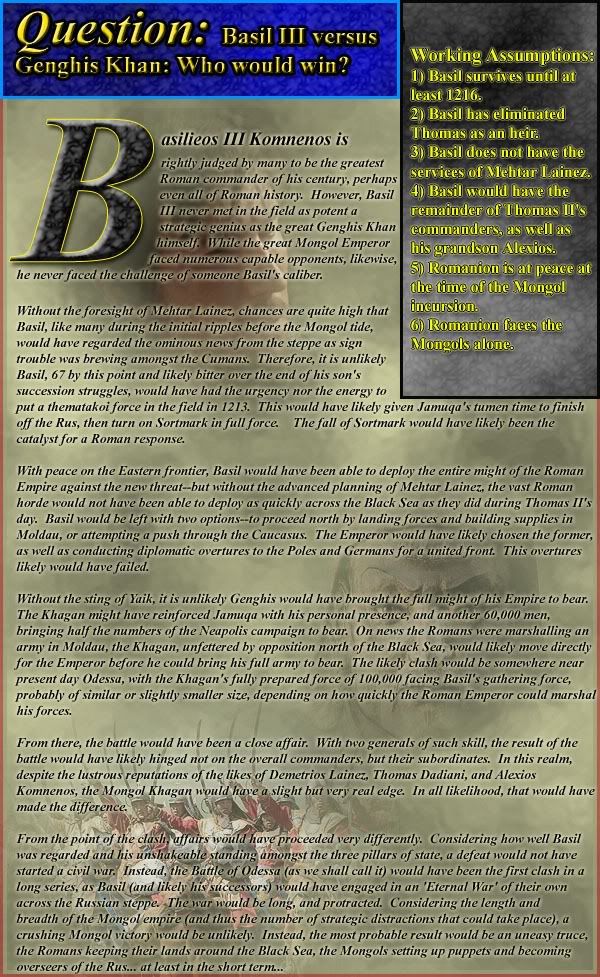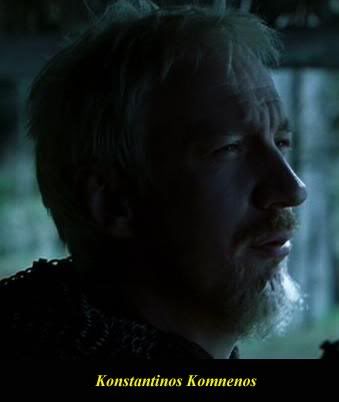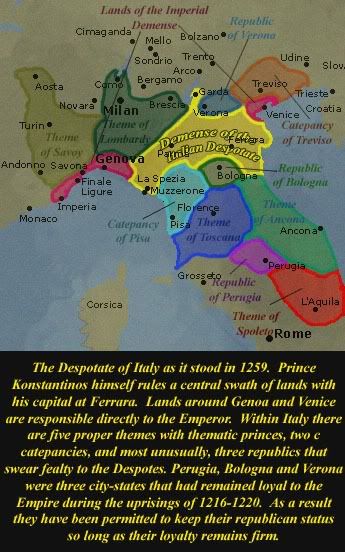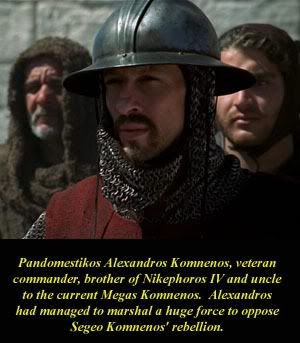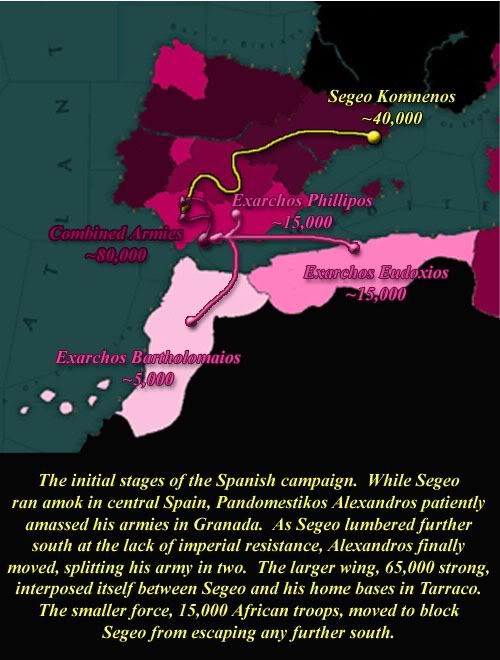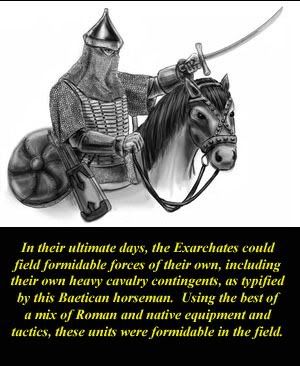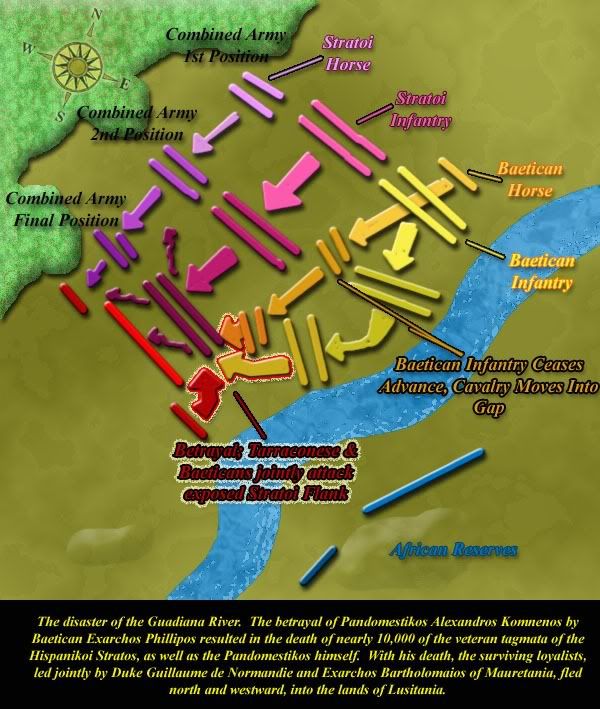Firstly, thanks everyone for your input on how that idea looks. I've been playing with it for years now but I'm still learning not just how Photoshop works, but what looks
good with the program! Once again I'll tally up the results on Wedensday, and we'll see what interim material we have!
DarthJF - Basil and Sophie were 4th cousins, I believe. That's not particularly close considering the habits of European royalty, but could be close enough to cause trouble... that sounds like the place for a modern academic interim!
Scotticus - No worries! Glad to still have you around!
And by the way, here's the next update!
"Η τιμή τιμή δεν έχει και χαρά σ'τον που την έχει."
“Honor is priceless, and be glad he who has it.” – Roman proverb
November 5th, 1259
Konstantinos Komnenos sighed, as a quiet Marmara breeze gently blew through the front windows of his villa inside the Queen of Cities, bringing with it the sounds and smells of a great city—the shouts of vendors and angry customers, the howls of matrons, the smell of cesspits.
The Prince of Toscana wrinkled his nose and sighed—he didn’t like his villa here, but considering how little he was in the city, he couldn’t see any reason to build a new one now that the city had expanded out to the formerly pristine land that had been here when his father had built it some twenty years before. The Muslim Quarter of all places. In the days before Konstantinos’ uncle Thomas II, the Muslims had lived outside the walls,as they were not of the Christian faith—that very threat kept their presence checked. With the new defenses ringing the city, their homes were finally secure, but imperial code had not kept up with the changes—technically, the old Theodosian Walls ringed the City itself, while the slew of structures springing up in the gap between the Theodosian and Thomasine Walls were ungoverned, unregulated.
“Pests,” the Prince of Toscana grumbled at no one, and everyone, all at once. Konstantinos didn’t have any special hatred for the Muslims that now flooded the area around his walled courts and gardens, it was the riffraff that came with city life. The street hawkers, the ruffians, the street urchins, the tanners—the debris that infested the rim of any great city.
“Milord?”
Konstantinos turned, and took another sip from his cup of water. Ishaq ibn Amin, Konstantinos’ grim, balding chief of clerks and personal manservant stood rigidly at attention before his lord, only five steps inside the doorway. Not even the warm browns of the fine oaken table and chairs between them seemed to fill the yawning void made by Ishaq’s own strict adherence to protocol. The Prince grinned—the yawning gap was one of Ishaq’s making, not his.
“Bring him in,” Konstantinos motioned. As Ishaq bowed and backed out of the room, the Prince set the cup down, his fingers drumming along the back of his personal chair. Konstantinos’ father had been a great man of taste, and the princely throne, like every chair Konstantinos occupied in this villa, was adorned with his father’s favorite motto, intricately carved in beautiful Greek.
Έχει ο καιρός γυρίσματα, κι ο χρόνος εβδομάδες."
“Time has turns, and a year has weeks.”
Konstantinos ran his finger along those letters. His father had been a patient man, a
very patient man. Nikolaios Komnenos had desired nothing more than to serve his brother Emperor Thomas and to be left in peace, and for staying his hand through the litany of succession crises that followed his brother’s death, Nikolaios Komnenos had received only a pittance. His patience had given Konstantinos the resources to build churches, roads, schools, and become the beloved
Despotes he was today.
The Prince’s smile dimmed slightly—the time for patience was over.
Ishaq’s precise footfalls cued Konstantinos that his time alone was over. The Prince looked up just as Ishaq returned, leading a tall thin man, who’s hawklike face was surrounded by the scraggly form of an ill-kept beard. By the inkstains on his fingers, he’d been culled from the middle of one of the endless letters Ishaq was sending on the behalf of his lord and master. The man stopped, and bowed as well.
Konstantinos smiled—so he hid his nervousness well?
“The clerk, Danislav Monomakh,” Ishaq bowed as well.
“Master Monomakh,” Konstantinos said sweetly. “You’ve been on my staff for almost a year,” Konstantinos smiled thinly, tapping his hand on the back of the empty chair opposite his own cushioned one. “Please, sit.”
The Prince watched as the clerk slowly edged towards the chair, then sat down with the wariness of a cat stealing morsels from a castle kitchen. Konstantinos walked over, and settled into his own chair, and closed his eyes for a moment. How to begin this?
“You no doubt want to know why you, a lowly clerk, have been called here. I’ll have you know, the meeting was not at the request of Ishaq, but of me.”
The man blinked, but stayed cool, calm. Konstantinos couldn’t help but smile—so he had the heart of a professional. He deserved some honesty.
“I know your name is not Monomakh,” Konstantinos steepled his hands and smiled slightly, “so let’s dispense with any attempts at deception, and start from the beginning. My name is Konstantinos Komnenos, Prince of Toscana and
Despotes of Italy. You are…?”
The man sat, wide eyed for a moment, before almost visibly shaking the confusion from his mind. “Danislav Monomakh,” the man said quietly. He looked down momentarily, the only betrayal of the nervousness no doubt in his heart. His eyes then looked back up-hard, defiant. “I am…”
“An agent from the court of Sortmark?” Konstantinos’ smile grew a little wider. The man’s face never changed, but his eyes looked as if he’d seen a ghost, and finally the Prince couldn’t resist any longer—he laughed. Great peals of laughter that echoed off the rafters of the villa. When they finally subsided, Konstantinos eyed the Prussian—he still sat rigid, alert, primed to fight or flee at the smallest provocation.
“Be at ease,” Konstantinos motioned for his servants. A jug of wine, two goblets, a bowl of fruit and requisite dinnerware materialized between them a minute later. “And I know your name is not Danislav—but since we have only first met, I’ll forgive your rudeness. Now,” the Prince said, reaching for a juicy date, “if I had wanted to harm you, or capture you, it would have happened. Clearly,” the prince said, biting into the fruit, “I simply want to talk.”
The man sat there, quiet as a mouse, waiting for the Prince’s next move. Very well.
“Hmmm,” the Prince murmured. “Let’s begin with why you are here.” His smirk came back. “It’s clearly not to supplant my own clerk,” Konstantinos nodded towards Ishaq. “You wonder how I saw through your disguise? Ishaq noticed you used idioms in your translations only someone from Sortmark would know.”
“Ah,” the man spoke, for the first time in their brief meeting.
“So,” Konstantinos steepled his fingers once more, “What is your purpose here? If you don’t wish to tell me, speak now so I do not waste my time.”
The man’s eyes darted left, then right—clearly Konstantinos’ openness was confusing him to no end. However, it was the Prince of Toscana’s turn to play the quiet game. As moments ticked by, Konstantinos sat, holding that same smile on his face, watching the man before him become more and more unnerved. After five minutes, he finally spoke.
“My… my purpose was to solicit your willingness to take the Roman throne,” the man admitted.
“My willingness to take the throne?” Konstantinos repeated slowly. “Ah. By what means?”
“My master is prepared to support you with coins and arms to make you the true ruler of the Roman Empire,” the man said firmly, confidently. “He has allies from Spain to Mesopotamia…”
“Pardon me for saying this,” Konstantinos leaned forward, “but you all are
very new to this game, are you not?”
“…and…” the man’s words skidded to a halt. He blinked, confusion rampant across his face.
“The game of spies?” Konstantinos raised an eyebrow. “I imagine you Danes know more than humanly possible about the game of
knives, or would it be axes?” the Prince smirked, before settling back in his chair, “but a subtle word can do more damage than the most grievous knife-wound. Besides, how many coins? How many arms?” Konstantinos waved his hand airly, before giving a snort. “For your information, Master Danislav, as commander of the Italian armies I probably muster
twice the men as your likely master.” The blonde prince sighed, then started to stare out the window of his villa. “Why should your coin, or your men, persuade me to move when
my coin, and
my men, have not?”
Konstantinos didn’t need to look to know the man had started to open his mouth, but no words came out. He heard the audible
click of teeth hitting together when it closed. For a moment longer, the Prince of Toscana watched the hustle and bustle of vendors in the streets, guardsmen and heralds pushing past, and sighed again—Konstantinos Komnenos wanted power, yes. Influence, yes. But at the price of taking this city of sin?
“Do not fret, I only said no for the moment,” Konstantinos said distantly, before finally bringing his eyes back to the man. “I think we might be able to help each other…”
==========*=========
February 7th, 1260
Zeyd al-Rashid,
Malik of the Algiers, Oran, and Constantine
thematakoi of
Exarchos Eudoxios of Africa reined up his horse on a low ridge. Any other day, Zeyd might have been inclined to sigh at the blue waters of the Guadiana and the endless fields surrounding that sapphire ribbon, but not today.
The vista of blues and greens was disrupted by ugly streaks of brown and gray, the air disturbed by the rumble of thousands of men and horses preparing for battle.
Segeo Komnenos had come calling.
The
Malik felt his horse shy slightly, and Zeyd pulled gently on the reins to remind the beast who was in charge, even as his own blood ran cold—not at the sight below, but what was to come.
When Segeo Komnenos had thrown off the yoke of Konstantinopolis in 1158, he’d ensured a confrontation was inevitable. While the
Exarchos of Tarraconensis might have been a political idiot, he was a respectable tactician—considering Tarraco was fighting alone, he knew he could not simply sit on the defensive and wait for the armies of
Pandomestikos ton Dytikos Alexandros Komnenos to come for him—given sufficient time, the brother of the maimed Nikephoros could bring an awe-inspiring force in the field. Tarraco’s hopes lay in striking hard, striking fast, before the
Hispanikoi Stratos could be fully mustered.
So early in February, 1259, just as Alexandros Komnenos returned from the coronation of his nephew, flushed with coin to raise a powerful host, Segeo moved on Toledo with the backbone of Tarraco’s forces—an army nearly 40,000 strong. The city put up a stout resistance, but finally fell to the Tarraconese on July 8th, the same day that Alexandros met with
Exarchoi Bartholomaios of Mauretania, Eudoxios of Africa, and Phillipos of Baetica, securing their support for raising an army quickly against Segeo’s forces. As Segeo steadily advanced south in the face of little opposition, Alexandros Komneons calmly began marshalling supplies and men at Malaga.
The lack of an imperial response only emboldened the Lord of Tarraconensis, and he plunged even deeper into Spain, at first molesting the lands around Cordoba, before heading even further south, towards Sevilla, his presence taunting the
Pandomestikos, daring him to move before he was ready.
However, the
Pandomestikos had not been idle.
In fact, Alexandros Komnenos had been planning for that very moment. The further south Segeo marched, the further he dragged himself from his own source of supplies. The
Pandomestikos ordered the lands north of Sevilla to be devastating—crops burnt, fields razed, compelling Segeo to keep moving ever further south, and ever closer to the massive army Alexandros Komnenos had built over the course of that long summer.
Alexandros chose to spring his trap in mid-winter, early January, when his enemy would be at his hungriest and his own men fattened from campfood, itching for combat after months of idleness. It was also when Zeyd and his fellow Africans arrived in Spain, swelling the
Pandomestikos’ already enormous force into something truly colossal—nearly 80,000 under arms, a vast and powerful host.
“Oh, what idleness will do,” Zeyd murmured to no one in particular as his mind remembered very particular things said and done during those long months. The
Malik looked down at those lines—the Tarraconese line ragged, homely, even from afar looking like a mass of tired, broken men compared to the pristine, perfect array that was the much larger Imperial army to its opposite. Part of Zeyd’s mind wanted to praise those hard, implacable lines—but that part was drowned out by the knowledge of what some of those lines were about to
do.
When he’d finally moved, the
Pandomestikos had shown his considerable skill. Instead of merely bullrushing his smaller opponents as a lesser commander might have, Alexandros instead used his larger forces to hem Segeo into the valley of the Guadiana, using
Exarchos Eudoxios’ faster Berber and North African troops to march around Segeo’s positions and take him from behind, forcing the wily northerner to finally come to battle, surrounded by forces double his size, the Guadiana at his back. Here, only a mile from the same plains where the
Megaloprepis had nearly died to create Roman Spain, would Segeo Komnenos meet his end.
Zeyd sat uneasily on his charger as drum rolls and trumpet calls echoed from the valley below. For a moment the air hung still, before distant, rolling like a thunderstorm on the horizon, the rumble of thousands of men and horses moving forward echoed up the valley, banners fluttering in the light breeze. To the north, on the right, lay the tyrian purple banners of
Pandomestikos Alexandros, while to the left moved the riot of colors that were the
thematakoi of Baetica, from
taifa militias from Seville, Cadiz, Granada and Malaga, to the heavy cavalry of the Exarch himself. Like some macabre, grotesque parade, that long, dark line moved imperceptibly closer, towards the waiting mass of Segeo Komnenos’ men.
“Beautiful isn’t it?”
Zeyd smiled thinly at the man on his left. Being the
Malik to
Exarchos Eudoxios de Toulouse and commanding all the Muslim
taifa he brought here today was a great honor, but one that Zeyd wished he was without.
It wasn’t for lack of loyalty or skill—Zeyd had made a name for himself twenty years before, when as a young man he’d led local Muslims in resisting the mass incursion of Latin ‘Crusaders’ in the lands around his native Tunis, at first leading raiding parties on Latin detachments, then organizing the first local army to resist them outright. Later he openly coordinating with the friendly then-Western Roman Emperor Nikephoros, attracting the man’s attention with his skill on the battlefield. For that reason, almost 10 years ago now,
Megas Komnenos Nikephoros on his coronation day promoted Zeyd to the rank of
malik—equivalent to the Christian rank of
domestikos, and appointed him to the court of the
Exarchos of Africa.
Zeyd smacked his lips, an acrid taste filling his mouth. No, he tried to tell himself, they weren’t committing mass slaughter. It was a battle. It was a war. In war, there were tactics, there were strategems. All was fair.
But today…
While Eudoxios grinned broadly at the scene across the river below, Zeyd’s brief smile died. Zeyd al-Rashid had seen more battles, and more bloodshed than he cared to remember in his 43 years. When he had killed, he’d killed men who were standing up, facing him. He’d slain men that were armed. War was brutal enough as it was—al-Rashid saw no reason to make an already dark act even darker through stabbing someone in the back like a common murderer.
Today, Zeyd al-Rashid was not posted at the front, in the thick of battle. Today, he and his
taifa militia, like the rest of the African Exarchate’s 15,000 men, were expected to close the gate, to hem in Segeo and prevent his escape. While 65,000 loyalists clashed with Segeo’s 30,000, Zeyd and his master would sit across the Guadiana, closing the door, keeping the Tarraconese from escaping across the river.
As Zeyd watched those perfect imperial lines slowly trudge towards the enemy, the seemingly ragged Tarraconese holding still waiting for the inevitable, he dared not glance over at his lord. Eudoxios was positively
grinning, excited, despite the fact the would not lift his sword at all during the coming struggle.
That thought made Zeyd’s stomach turn a little. It was one thing to cheer the dark events that were to come, it was another to cheer from the pillar of safety that was distance from the field itself. Here, Zeyd could only watch the macabre dance below, even as he wanted to ride down to Lord Alexandros, and warn…
“Aha!” Eudoxios announced with a pointing finger, interrupting Zeyd’s morose thoughts. The
Malik looked up, as the bizarre raindbow of
thematakoi banners and pennants suddenly came to a ragged, confused halt, even as the thick
stratoi battlelines still surged forward.
“A mess,” Zeyd said, sourness in his voice.
“Ah, but a beautiful mess,” Zeyd’s Prince nodded towards the debacle down below. As the Berber watched, couriers were already ahorse from the
Pandomestikos’ position, galloping towards the ‘faltering’ Baeticans on the right. Zeyd closed his eyes, trying not to frown—he knew what those messages likely were.
Shouts, threats, repeatedly calling,
“Why in God’s Name have you stopped advancing?”
“Poor Alexandros,” the Berber said quietly in his native tongue, before muttering a brief request that Allah would be merciful to the man about to suffer.
“What?”
“Nothing,” Zeyd said quickly, waving his hand. “You were saying my lord?”
“Um.. ah!” the
Exarchos found his tongue again. “Alexandros isn’t going… aha! There they go!”
Zeyd didn’t need to follow Eudoxios’ finger—the sight of two
tagmata of cavalry crossing from the rear of the
thematakoi line towards the now yawning gap in the middle of the Roman ranks was obvious. The acrid taste returned to the Moor’s mouth—he knew what Alexandros Komnenos was probably thinking.
Ah, Thrakesios has sent cavalry to plug the gap while he sorts out his infantry! It’s what Zeyd, too, would have thought if he was in that position.
Unfortunately, Lord Komnenos was wrong.
Dead wrong.
Before his unwilling eyes, he watched as those two
tagmata kept riding towards that gap, then angled themselves slightly. No longer did they ride for the gap, they rode for the wide open, unprepared flank of the
Hispanikoi stratos. Lances dipped, tiny fingers of death in the distance, a cloud of dust rose as horsemen spurred their steeds into a deadly gallop. Zeyd was too far away to hear the shouts, screams of surprise and horror, as five thousand cavalrymen slammed into the unprepared, wide-open flank of Alexandros’ line.
The suddenly immobile
thematakoi infantry of Baetica snapped to life, performing a right face to form a thick, clumpy line of battle on the flank of the suddenly endangered
Hispanikoi. Likewise, the once listless Tarraconese army came alive with drums and bugles, as 30,000 men lurched into a charge, quickly closing the gap between themselves as Alexandros’ quickly breaking army.
Zeyd closed his eyes—he couldn’t watch any more. He didn’t want to watch any more. From his high position, he could only hear the sounds of bugles and drums, a distant roar of men shouting and mailed feet thundering over the ground. The noises of a victory mixed with the noises of a massacre, and the proud, chivalrous Moor felt dirty, used, despite not even drawing his sword.
Al-Rashid finally opened his eyes. Only a few minutes could have passed, but already amidst the chaos below he could see the loyalist army breaking, running for the hills, tyrian purple banners tumbling to the dirt.
“Well, that’s enough excitement for today,” Eudoxios muttered, turning his horse. “Come Zeyd,” the
Exarchos called to his
malik, we march for Almeria, and then sail home!”
The
Malik swallowed hard, and uttered a prayer asking for forgiveness, before turning his horse to follow.
So Konstantinos has agreed to
talk to the Danes, even as he makes jibes at their expense about their expertise. Meanwhile, a cabal of plotting Exarchs has broken the
Hispanikoi Stratos. What will happen in Spain? Will the cabal stay together? What is Konstantinos’ price from men he clearly disdains?
Zeyd al-Rashid is a cameo from another AAR I’ve been long meaning to honor. If you want another healthy dose of Byzantine, look no further than crusaderknight’s
The Morea: A Paleologid AAR, where we follow the rise of the aforesaid dynasty, and their Kingdom of Morea, to heights of greatness, led by a writer that's inspired me several times! Go check it out!
EDIT - Fulcrumvale gets a cookie for finding out that yes, there is actually time travel in this AAR!

Date mistake fixed!



